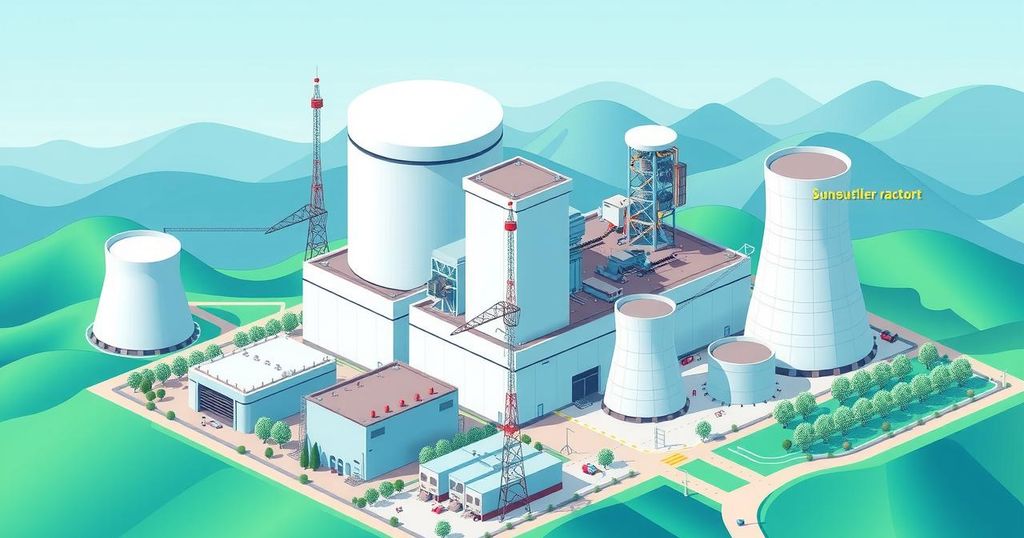Ghana has chosen the United States and China as vendors for its first nuclear power plants. NuScale Power and Regnum Technology Group will construct Small Modular Reactors, and China National Nuclear Corporation will build a Large Reactor. Current efforts focus on frameworks, financing models, and environmental assessments, aiming to incorporate nuclear power into the grid by 2034 to enhance energy security and support industrialization.
Ghana has identified the United States and China as the preferred vendors for its inaugural nuclear power plants, although formal contracts have yet to be executed. NuScale Power and Regnum Technology Group, based in the U.S. and collaborating with Japanese firms, are set to construct Small Modular Reactors (SMRs). In tandem, the China National Nuclear Corporation is tasked with building a Large Reactor (LR). The information was shared by Dr. Stephen Yamoah, Executive Director of Nuclear Power Ghana, during a media event in Accra.
The planned LR will have an output of 1,200 megawatts, while the SMRs will consist of 12 modules, each designed to produce 77 megawatts for a total of 924 megawatts. Dr. Yamoah elaborated that the LR project will be financed through a Build, Operate, and Transfer (BOT) model, allowing for local investment. Conversely, the financing for the SMRs will be arranged through Public-Private Partnerships (PPP). Currently, a framework agreement has been signed with the chosen vendors, as experts conduct vital environmental and oceanic assessments to identify suitable locations for the plants.
Emphasizing the necessity for stable and affordable electricity for Ghana’s advancement, Mr. Archibold Buah-Kwofi, Acting Director of the Nuclear Power Institute, remarked on the country’s heavy reliance on fossil fuels and hydro power, with renewables contributing a meager one percent. He stated, “We need to fast-track the adoption of nuclear power to secure our energy future,” underlining the significance of establishing a robust regulatory framework and skilled workforce.
The adoption of nuclear energy is anticipated to diminish dependence on fossil fuels, combat climate change, and strengthen energy security. The government aims to incorporate one gigawatt of nuclear power into the national grid by the year 2034. This initiative will bolster industrialization efforts, counteract declining hydro resources, reduce industrial tariffs, enable desalination processes, and generate employment opportunities.
The vendor selection process was meticulous, commencing with 16 responses to the government’s inquiry. A technical team, under the guidance of the Energy Ministry, filtered the responses down to five before ultimately selecting the two final vendors. Ghana’s aspirations for nuclear energy, initially interrupted by a coup in the 1960s, were rejuvenated in 2006 with support from the International Atomic Energy Agency (IAEA). Ghana is joining several African nations in pursuing nuclear power solutions to meet energy demands and facilitate economic development.
In summary, Ghana is progressing towards the development of its first nuclear power plants with the selection of the United States and China as vendors. This endeavor, emphasizing stability in electricity supply, seeks to integrate nuclear energy into the national grid by 2034, addressing reliance on fossil fuels, stimulating industrial growth, and fostering economic resilience. Comprehensive planning and assessment are essential to ensuring the success of this initiative.
Original Source: www.myjoyonline.com






